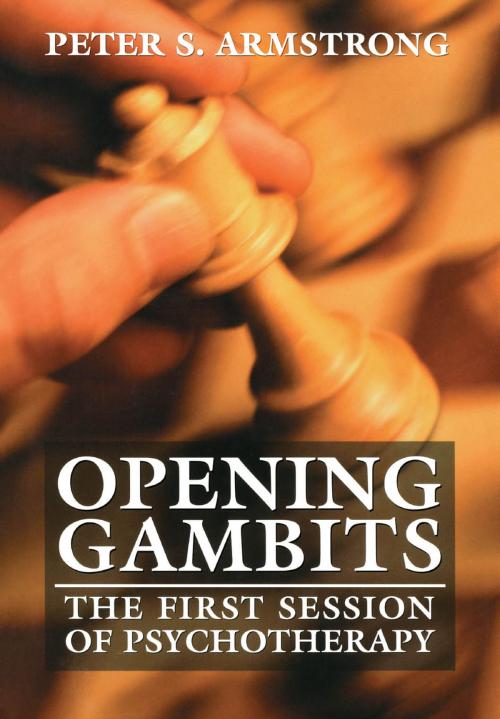Opening Gambits
The First Session of Psychotherapy
Nonfiction, Health & Well Being, Psychology, Applied Psychology, Psychotherapy| Author: | Peter S. Armstrong | ISBN: | 9781461734079 |
| Publisher: | Jason Aronson, Inc. | Publication: | March 1, 2000 |
| Imprint: | Jason Aronson, Inc. | Language: | English |
| Author: | Peter S. Armstrong |
| ISBN: | 9781461734079 |
| Publisher: | Jason Aronson, Inc. |
| Publication: | March 1, 2000 |
| Imprint: | Jason Aronson, Inc. |
| Language: | English |
The first session of psychotherapy is critical in determining the course of successful treatment because the possibility of engaging a patient is at its height during the initial contact. This book offers guidelines to enhance the clinician's ability to conduct an effective first session.
The therapist's stance and its implications for first session technique are discussed (e.g., first words, therapist anxiety, and subtle directives) as well as issues of scheduling, fees, and cancellations. Armstrong identifies eight essential tasks of the first session (including, for example, an atmosphere of safety, patient assessment, the contract, and transition), and demonstrates with rich clinical detail the steps he takes to accomplish them. Specific attention is given to patients with previous therapy, returning patients, compliant and meek patients, and those in need of medication or hospitalization. Well considered and thought-provoking, this book introduces beginning therapists to the complexity and range of first session concerns, and challenges experienced therapists to rethink the techniques and personal mannerisms that may have become automatic in meeting a patient for the first time.
The first session of psychotherapy is critical in determining the course of successful treatment because the possibility of engaging a patient is at its height during the initial contact. This book offers guidelines to enhance the clinician's ability to conduct an effective first session.
The therapist's stance and its implications for first session technique are discussed (e.g., first words, therapist anxiety, and subtle directives) as well as issues of scheduling, fees, and cancellations. Armstrong identifies eight essential tasks of the first session (including, for example, an atmosphere of safety, patient assessment, the contract, and transition), and demonstrates with rich clinical detail the steps he takes to accomplish them. Specific attention is given to patients with previous therapy, returning patients, compliant and meek patients, and those in need of medication or hospitalization. Well considered and thought-provoking, this book introduces beginning therapists to the complexity and range of first session concerns, and challenges experienced therapists to rethink the techniques and personal mannerisms that may have become automatic in meeting a patient for the first time.















